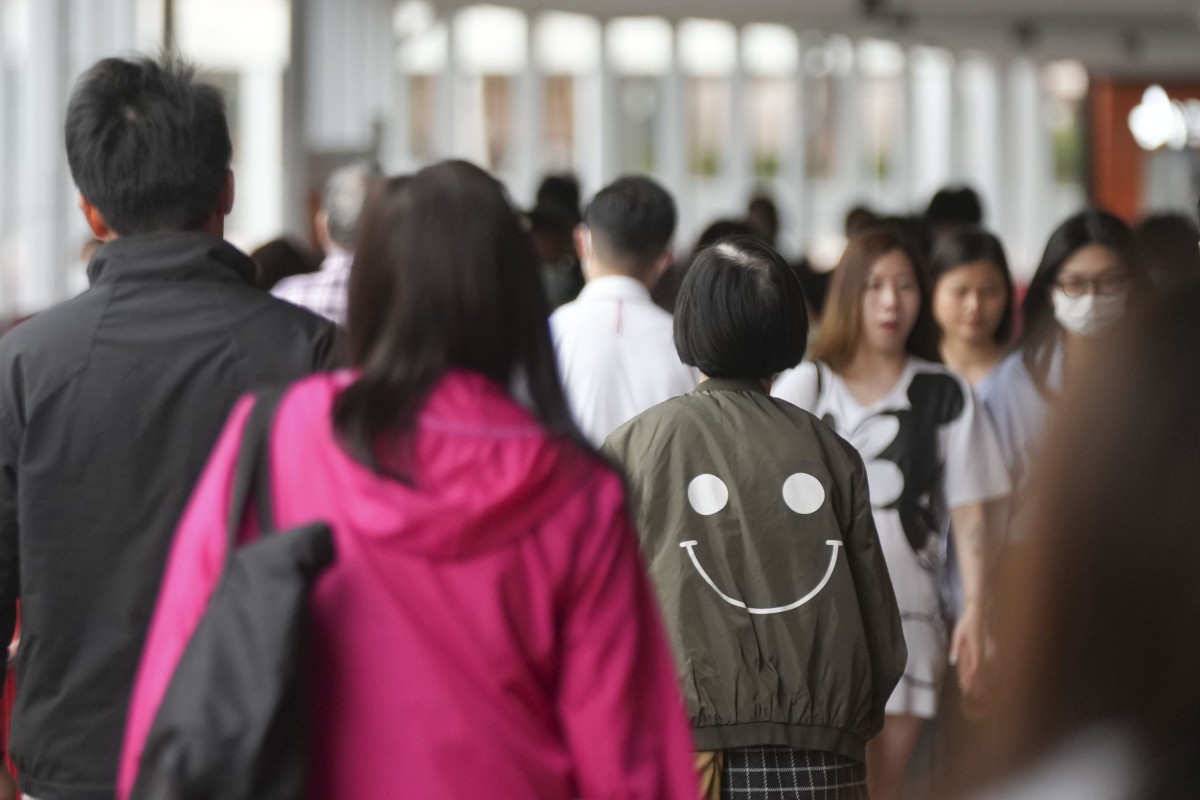- Families on average report score of 6.57 out of 10 in Hong Kong Family Happiness Index, compared with 6.98 last year and 7.26 in 2021
- Experts warn public still coming to terms with life after Covid-19 and encourage those in need to seek help
 Happiness in Hong Kong has dropped to a three-year low, a new survey has found. Photo: Sam Tsang
Happiness in Hong Kong has dropped to a three-year low, a new survey has found. Photo: Sam TsangThe happiness levels of families in Hong Kong has dropped to a three-year low, a poll has found, with some experts warning that residents could take up to a year to come to terms with the stress and anxiety caused by the Covid-19 pandemic.
Families on average reported a score of 6.57 out of 10 in the Hong Kong Family Happiness Index, compared with 6.98 last year and 7.26 in 2021, according to compiler Wofoo Social Enterprises subsidiary HK.WeCARE, which released the results of its findings on Wednesday.
The poll of 1,356 people also found that respondents aged 19 to 24 reported the largest drop in happiness, falling to 6.09 this year from 6.91 in 2022. They were followed by those between 55 and 64, whose score fell from 7.30 to 6.57.
Mental health in spotlight in Hong Kong after violent attacks in shopping centre, McDonald’s
But residents aged 65 and above recorded an increase in happiness, going from 7.33 last year to 7.37 this year.
Professor Simon Lam Ching, associate dean of research of Tung Wah College’s school of nursing, said the results for elderly residents showed they tended “to be less affected by their environment”.
“Their happiness remained stable, whether it was before, during or after the pandemic,” he said.
According to the survey, 17 per cent of respondents gave their families an index score of less than five, meaning they were “unhappy”. Lam noted the figure was almost double the 9.8 per cent recorded last year, calling the increase “concerning”.
He added that parents and those caring for family members with chronic illnesses were more likely to have mental health problems.
Daniel Shek Tan-lei, chair professor of applied social sciences at Polytechnic University, attributed the decline in happiness to an “unbalanced” approach authorities took to managing public health during the pandemic.
“There was a lot of emphasis on physical health, like constantly telling people to get vaccinated, but nobody ever talked about how to feel happier during that time,” he said, arguing the restrictions lacked “benevolence”.
Photo book explores mental health in Hong Kong during the Covid-19 pandemic
“I think even doctors will tell you that there are many dimensions to a disease – the physical part is just one aspect.”
Shek argued it was important to also consider psychological, social and “spiritual” factors when responding to a pandemic.
“So many people died,” he said. “How can we make sense of that? How can we counsel those people who had relatives or loved ones who are dead because of Covid?”
Experts also warned that authorities and the wider community should not assume residents’ mental health would immediately recover with the end of Covid-19 restrictions earlier this year.
Arguing that some Hongkongers could be struggling with post-traumatic stress disorder, Shek said: “For some people, the stress and anxiety could take months or even a year to reveal themselves.”
Residents were also struggling with unexpected issues amid the return to normality, such as children adjusting to in-person classes at school after three years of remote learning, he said.
“Some adults also have to get used to going back to work, while others may have lost their jobs, and there is now pressure to find a new one,” he said.
The academics urged people to seek help if they felt excessively unhappy and said a change in perspective could also be beneficial.
“Instead of focusing on how bad things are, we can also look back and think of what we learned from the pandemic,” Shek said.
